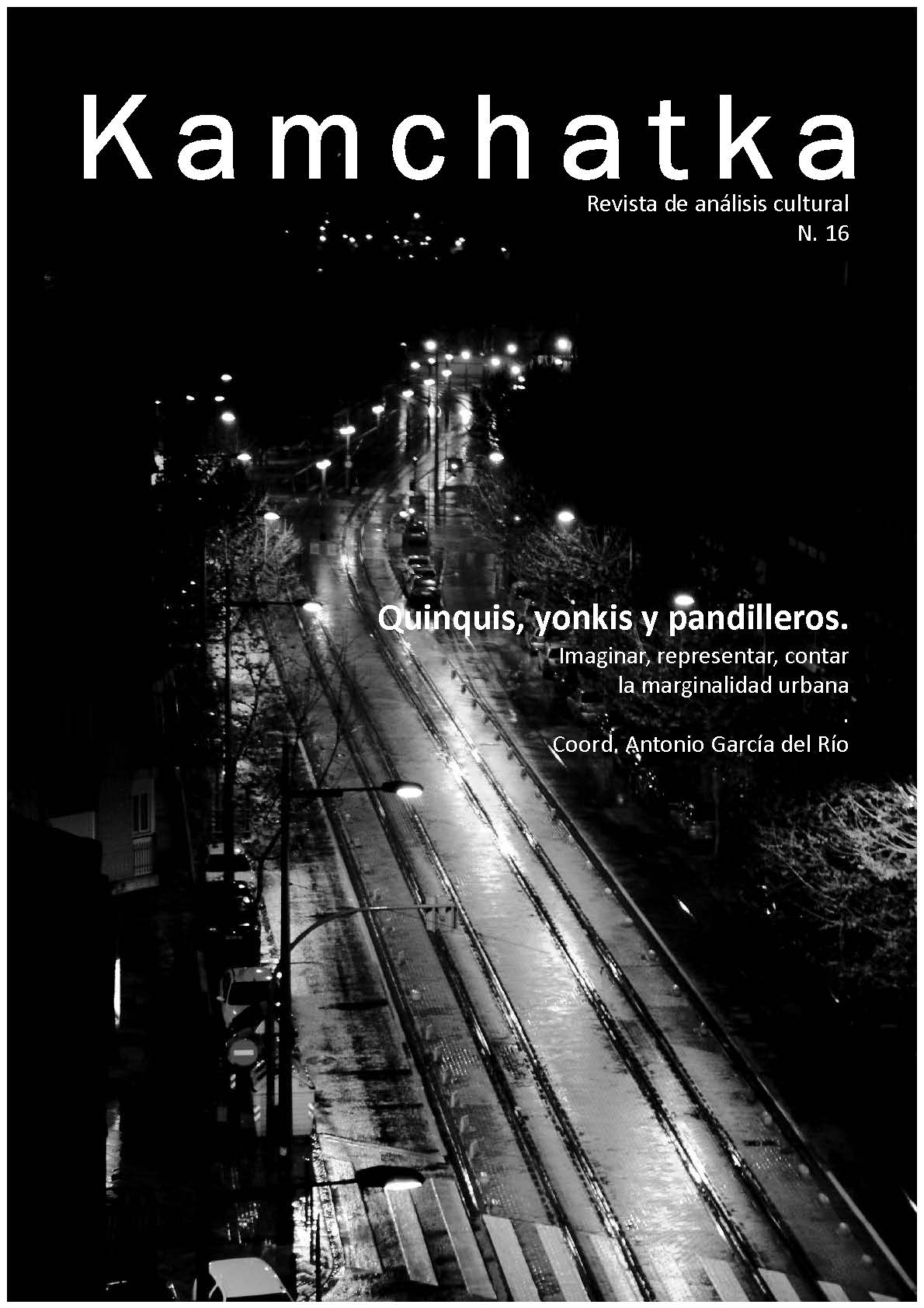NO MORE FIX! The heroine, between weapon of democracy and heroic vehicle
DOI:
https://doi.org/10.7203/KAM.16.16194Keywords:
counterculture, transition, democracy, delinquency, heroin. Abstract
Abstract
The Spanish counterculture flourished in the parenthesis of permissiveness that the transitional process, from oppressive Francoist structures to democracy, expedited social and cultural experiments. From 1978 onwards, the State will react to all this socio-cultural flowering of an autonomous sign, fostering a climate of truculence, sensationalism, fear, paranoia, delinquency, stigmatisation of poverty and drugs which, surprisingly orchestrated from the media, were also assumed as identity traits by the marginalized groups themselves.
 Downloads
Downloads
 References
References
Balestrini, Nanni (1988). Los invisibles. Barcelona: Anagrama.
Carbó, Jordi (2009). El Saxo. Barcelona: Sensenom/Roure.
Gómez Mompart, Josep Lluís. “La contrarrevolución del ‘caballo’”. El Viejo Topo 61 (1981): 38-41.
González Duro, Enrique (1979). Consumo de drogas en España. Madrid: Villalar.
Haro Ibars, Eduardo. “La droga mata”. Ozono IV, 37 (10/1978): 7-10.
Lenore, Víctor. “Heroína como arma de estado: así se desmonta el mito más absurdo de la izquierda”. El Confidencial (13/12/2015).
Orrantía, Mikel. “El caballo mata en Euskadi”. Cambio 16 473 (22/121980): 117-118.
MARCILLA, Pere. “De confidentes está el mundo lleno”. Revista Star, 48 (1979): 4 - 6.
Rei, Pepe (1993). La red Galindo. Tafalla: Txalaparta.
Usó, Juan Carlos (1996). Drogas y cultura de masas (España 1855-1955). Madrid: Taurus.
Usó, Juan Carlos. “Nos matan con heroína”. La web sense nom (17/05/2010). Extraído de “Madrid, capital de la sospecha”. Mombaça 8 (2010): 87-94.
Usó, Juan Carlos (2015). ¿Nos matan con heroína? Sobre la intoxicación farmacológica como arma de estado. Madrid: Libros Crudos.
Usó, Juan Carlos (2019). Drogas, neutralidad y presión mediática. Santander: El Desvelo.
Downloads
Published
How to Cite
-
Abstract881
-
Texto rescatado PDF (Español)779
Issue
Section
License
This journal provides an immediate free access to the content on the principle that freely make investigation available to the public, which promotes an increased global knowledge exchange.
Unless otherwise indicated, texts published in this journal are under the license Attribution-NonComercial 4.0 by Creative Commons. These texts may be copied, distributed and publicly communicated whenever the publication’s author and title are quoted and whenever they are not used for commercial purposes. In any case, intellectual property of the articles and its potential economic rights entirely belong to its authors.
The full license can be consulted on https://creativecommons.org/licenses/by-nc/4.0/. We encourage authors to disseminate papers published in Kamchatka. Journal of cultural analysis electronically, in institutional digital repository or in their websites.





